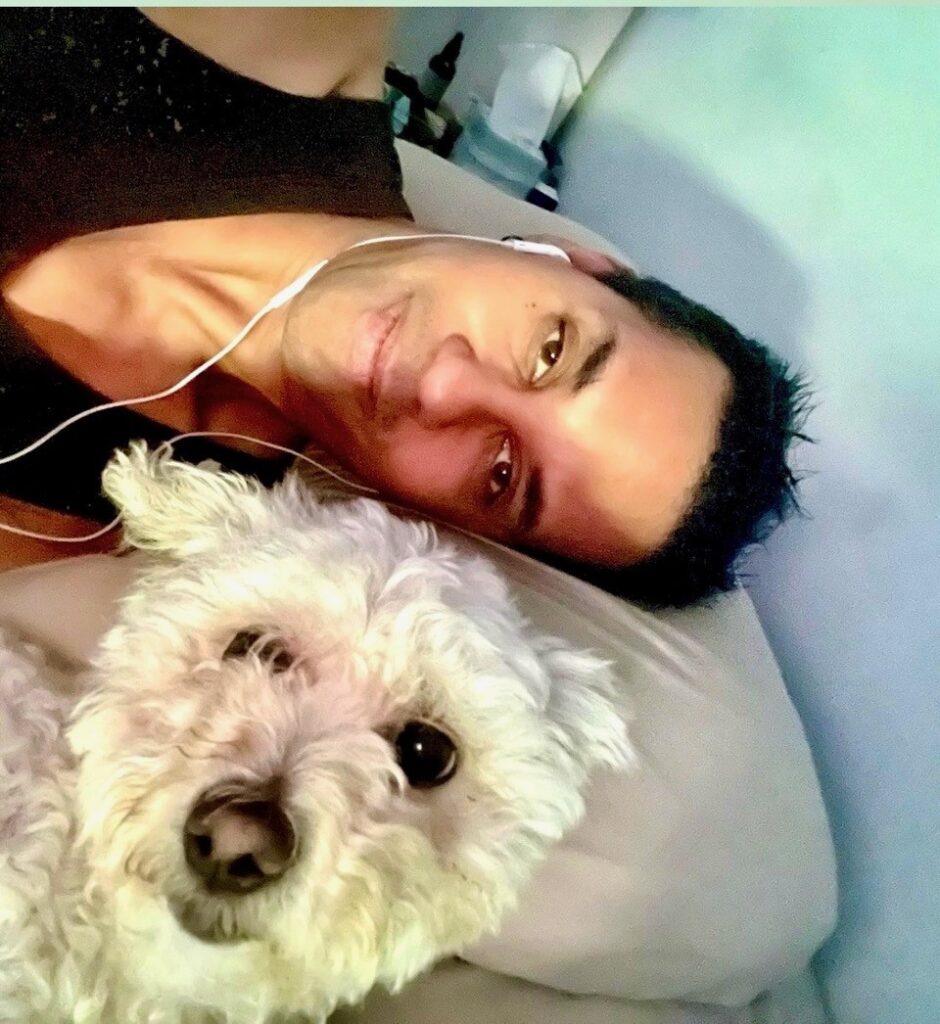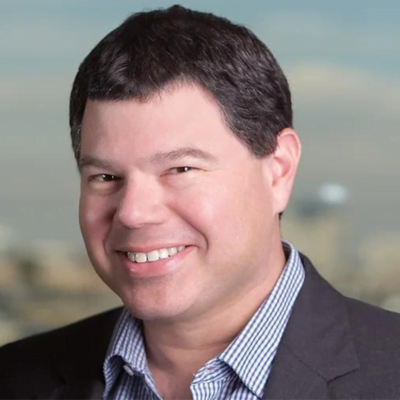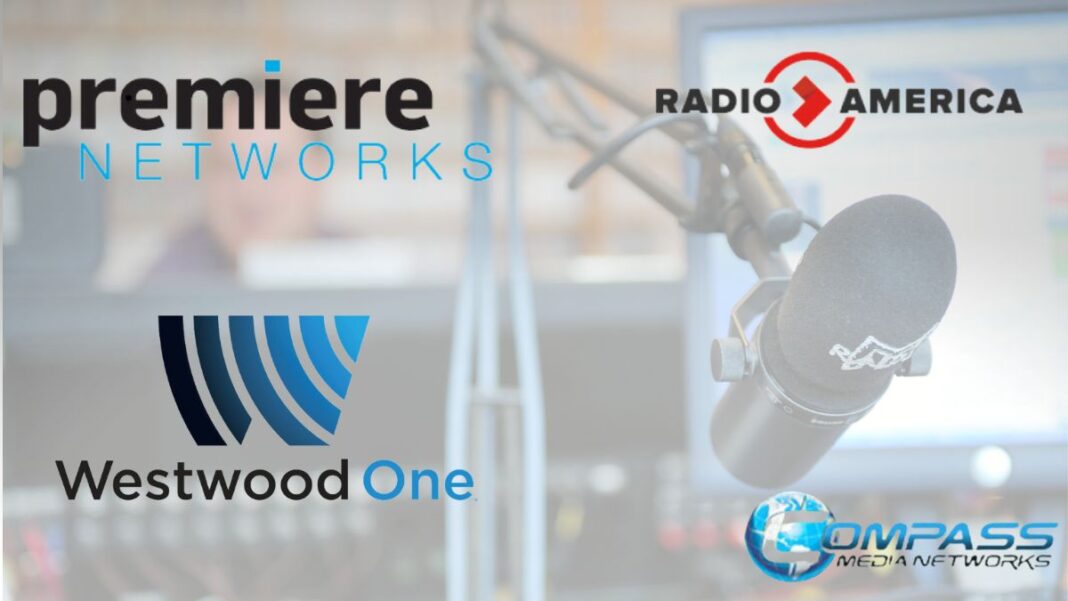Barrett Media produces over 20 stories per day on the music, news, and sports media industries. To make sure you’re updated on the latest happenings across the media business, sign up for our newsletters to get the news delivered straight to your inbox.
“I started in radio literally as a child,” says Nik Carter, recounting how his love of our medium began very, very early on. “I was a kid reporter for this NPR show called ‘The Spider’s Web.’”
From this auspicious beginning, Carter has made himself a name in our industry, especially in the Alternative and Rock worlds, with some big call letters and a lengthy run at SiriusXM under his belt. His first “real” gig was at the late, great WFNX/Boston, where he spent seven years before moving briefly to Providence, Rhode Island, to do mornings at WDGE (99.7 The Edge) for six months before heading back to Boston for nights at the venerable – and also, sadly, the late and great – WBCN. “I was in nights for a year, and [PD] Oedipus basically let me do a CHR show on an Alt station,” Carter recalls, talking about how the seeds of his personality-driven delivery were really planted there. “A little over a year later, I moved to afternoons, and that’s where things really started for me.”
Describing that Oedipus basically let him “run wild,” Carter was intent on doing something special at WBCN, so he began calling his show “The Afternoon Fiasco.” “I was up against Opie and Anthony, and just saying ‘hey, this is the new one from Pearl Jam, it’s cool, WBCN,’ wasn’t going to get it done,” he says. “A friend of mine at another station listened to me and heard me do a 10-minute break, and he asked me how I even found something to talk about for 10 minutes. I said, ‘Well, you’ve got to mine the gold when you find it.”
When his contract was up at the end of 2004, New York called, and Carter began commuting down from Boston to do shifts at – sadly, I’m sensing a theme here, but it was the late, great WXRK (92.3 K-Rock). He originally did part-time and then segued to music on the weekends and a few fill-in talk shifts when the station made its ill-fated foray into “Free FM” territory, then moved across the street for afternoons at WRXP.
A year later, Carter moved to VH1 Classic for the syndicated show “On Tap with Nik Carter,” but when budget cuts hit, the company offered to move his interviews to vh1.com. “They asked if it was cool, and I was like, yeah, the site gets 60 million hits a day! I’m all good!” he says, laughing.
A year after the budget axe finally claimed his job at VH1, Carter’s old boss, Roger Coletti, called to tell Nik he was pitching a new channel to SiriusXM. “He originally asked what I thought about a channel that talked about music but didn’t play it,” Carter recalls. “I said, ‘If you make it like sports talk for music dorks, it could work.’” That was the birth of “Volume” – and an experience that Nik holds dear.
“I’ve always sort of patterned myself in the mode of people like Tom Snyder, Larry King or Tavis Smiley – people who could literally talk to anyone,” he says. “I saw Larry King talk to Prince one night and then had Benjamin Netanyahu on the next, and he had great conversations with both of them. I might not be the best, but I’m at least a unique interviewer.” “Volume” was special to Carter for a number of reasons, not the least of which being that his was the first voice ever heard on the channel. “I’ve never launched a station before! And for our first day, I interviewed Lady Gaga and Kenny Loggins.”
During his eight-year run at “Volume,” Carter had some incredible experiences and interviews, giving him the opportunity to continue growing his ever-expanding musical knowledge and have some really unique encounters. His list of guests includes up-and-comers like Blu DeTigre, (at the time) Portugal. The Man, Kelsea Ballerini, and Carly Pearce; Alt radio staples like Incubus, Perry Farrell, Our Lady Peace, AWOLNATION, and Gwen Stefani; hip-hop legends including Chuck D and A Tribe Called Quest; plus legends like Engelbert Humperdinck, Cheech and Chong, Barry Manilow and Jimmy Buffett.
“I talked to Paul Williams about inspiring Daft Punk, and Neil DeGrasse Tyson became a regular on the show,” Carter reflects. “My interview demo begins with Matthew Modine talking about being on-set the day LL Cool J and Jamie Foxx got in a fistfight on ‘Any Given Sunday.’ I sang ‘Good’ with Better Than Ezra, and I got Chris Carabba of Dashboard Confessional to sing the lyrics of Smash Mouth’s ‘All Star’ over the music of his song ‘Saints and Sailors.’” It was truly an awesome time for Carter, who found himself chatting with people he grew up idolizing. “I used to say that once again, the posters on my childhood wall have come to life,” he comments.
Carter had to learn a lot, not just in terms of being able to cover a lot of different musical genres but also to be able to talk to anyone. “One day, we were in the middle of a bit and all of our phone lines were full with people waiting to talk to us on-air,” he recalls. “My boss showed up at the studio door and says, ‘Okay, I’ve got Wyclef here for your interview,’ and we all look at each other like ‘what are you talking about?’”
Somehow, it slipped through, and Carter hadn’t planned for it, but what else can you do when Wyclef Jean shows up at your door? “I told the people on hold that I was sorry, but Wyclef was here, and we were going to chop it up with him,” Carter says. “We talked to Wyclef for half an hour. I don’t know how it fell through the cracks, but we had to adjust and keep it moving, and he was fantastic.”
Given his experiences and unique viewpoint, what does Carter feel the future of radio needs? “Honestly, I think it’s going to have to be personality-driven again,” he says, name-checking some of the jocks he admired and compiled boxes of airchecks from, like Sluggo and Jed The Fish. “They made a difference between the records, which we need even more – especially in Alternative, where we’re sharing music with so many different formats. I think there has to be a reason to tune in besides just hearing a lot of the same music that’s being shared with other stations in the market.”
When he was last on terrestrial radio, Carter wasn’t yet competing against the endless sources of streaming content, but he thinks the principle of attracting an audience is still the same. “People were listening then because they wanted to be there – they weren’t just saying, ‘Oh, I don’t have Spotify in my car, so I’ll listen to this by default,’” Carter says. “People wanted to listen because they knew each one of these stations made you feel like you were part of a community. I have Spotify, and I don’t think people are choosing it because they hate jokes on the air. I really don’t. I think they’re choosing Spotify because they’re not getting what they want from FM radio. Of course, you’re not going to find a radio station that goes from Charli XCX to Stevie Nicks to some new unsigned band like Spotify might, but Spotify won’t have anyone on-air giving you context for what you’re listening to.”
Carter unwittingly found that his “Volumaniacs,” as the SiriusXM channel fans dubbed themselves, really did come together to form a very powerful community. During the pandemic, he and his co-host Lori Majewski did their morning “Feedback” show from their homes, and Carter’s dog, Lola, was an unintentionally featured guest on occasion. “Everyone who followed me on social media knew Lola, and I told listeners that if they heard Lola barking inappropriately on-air, they should take a drink or something even though it was 8 a.m.,” he says.
Sadly, Lola passed away about three years ago, and Carter was devastated because she had been such a huge part of his life for so long. “I was a mess on the air,” he admits. “She’d been with me for 16 years through three girlfriends and a bunch of jobs. But I was absolutely floored when the listeners banded together and donated $2,000 to the ASPCA in Lola’s name.”

Unfortunately, Carter experienced more loss shortly after when his girlfriend also passed away, and the listeners again asked Nik where they could donate in her name. “I don’t think I’ve ever really enjoyed a connection with listeners like that,” he reflects.
That communal feeling with his audience is what Carter is once again seeking. “I really just want to entertain more than anything else,” he says, recalling the early days of the Alternative format when jocks created a sense of being in a club (like an after-school activities club, not a dance venue) with listeners. “Everyone likes to be part of something.”
Nik Carter is available for full-time work and voiceover gigs. Contact him at rockvoxxx@gmail.com.

A former air personality and industry journalist, Keith Berman worked at the late Radio & Records for several years, where he held a number of positions before being promoted to format editor. While at R&R, he also served as a writer and reporter, covering breaking news; authoring weekly columns, format roundups and features; and contributing heavily to Street Talk Daily. When R&R folded, he co-founded RAMP (Radio and Music Pros) and spent 3 years covering radio and record labels before taking a hiatus from the industry. His experiences also include time on-air at stations in Connecticut, Boston and Southern California. He can be reached at KeithBerman@gmail.com.







